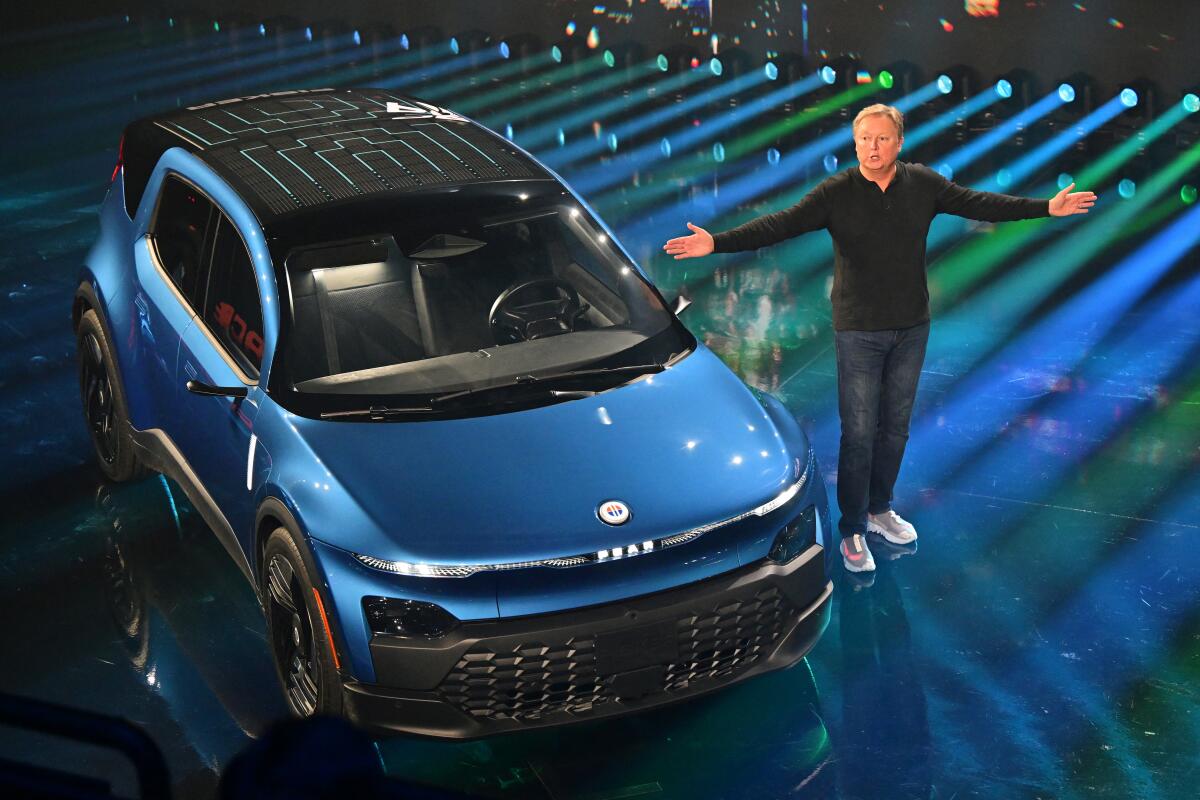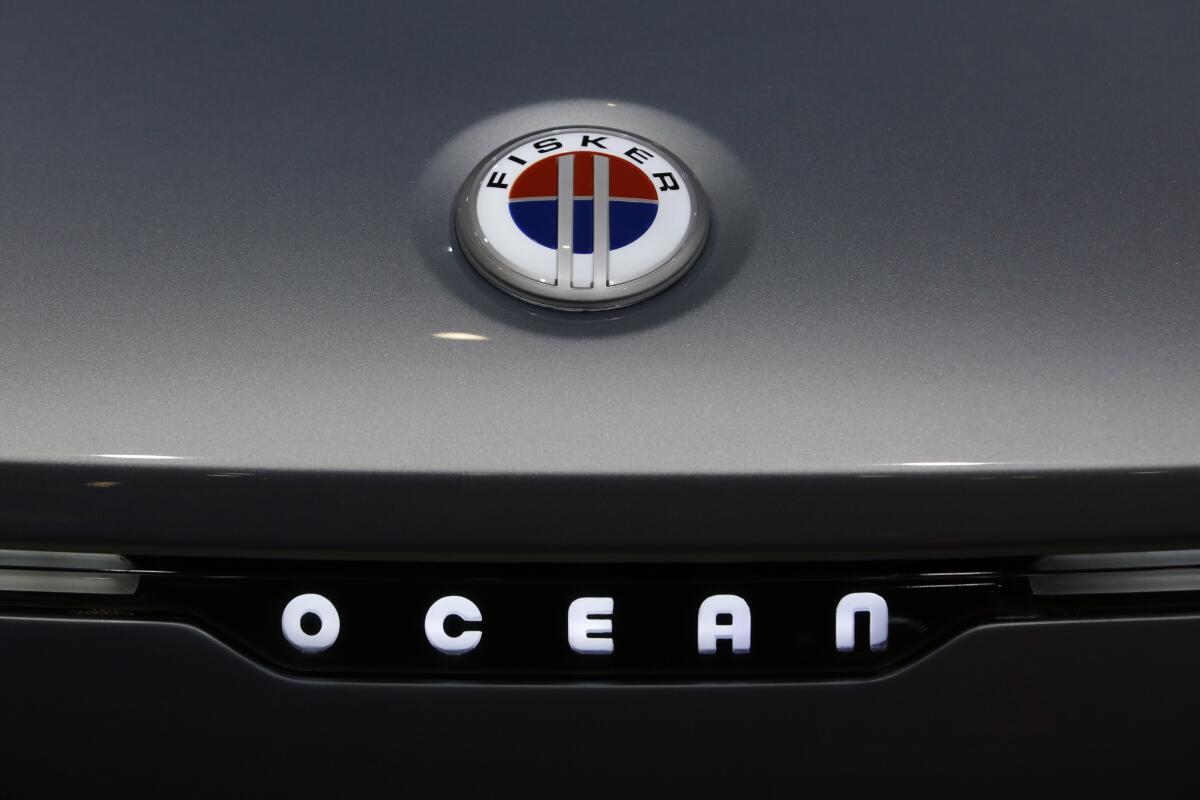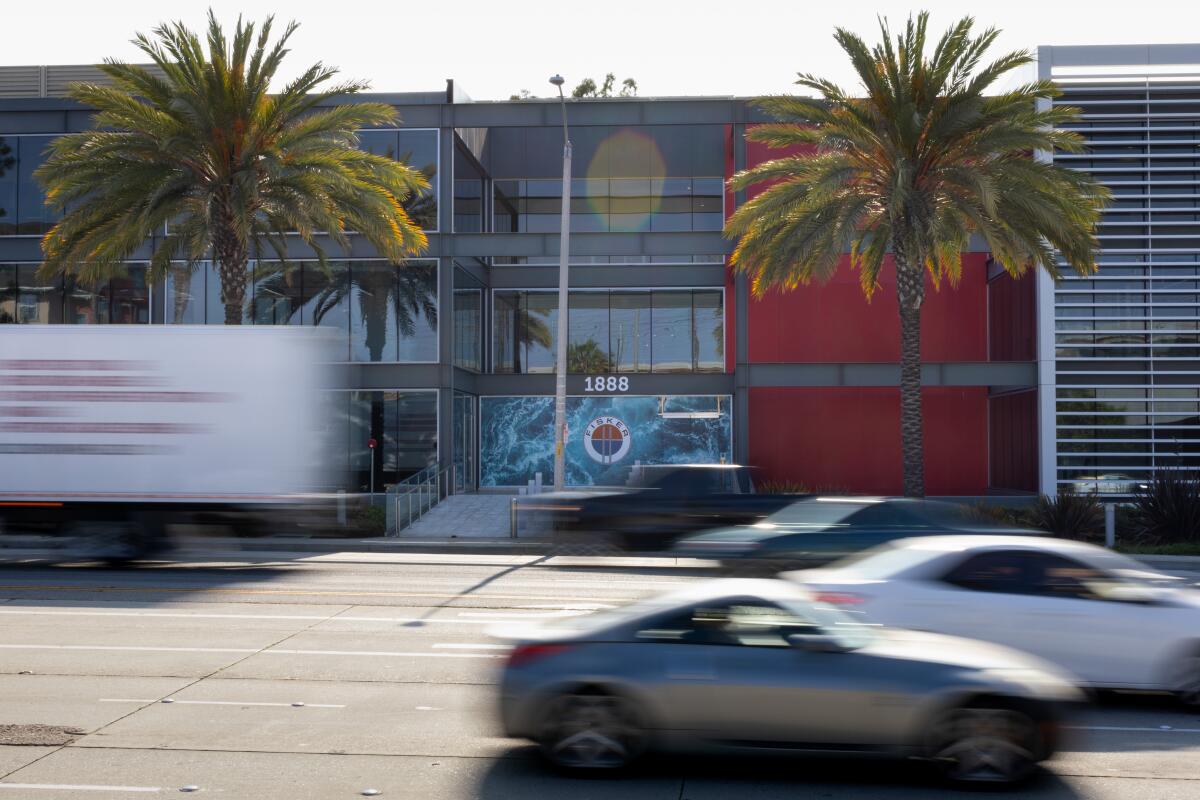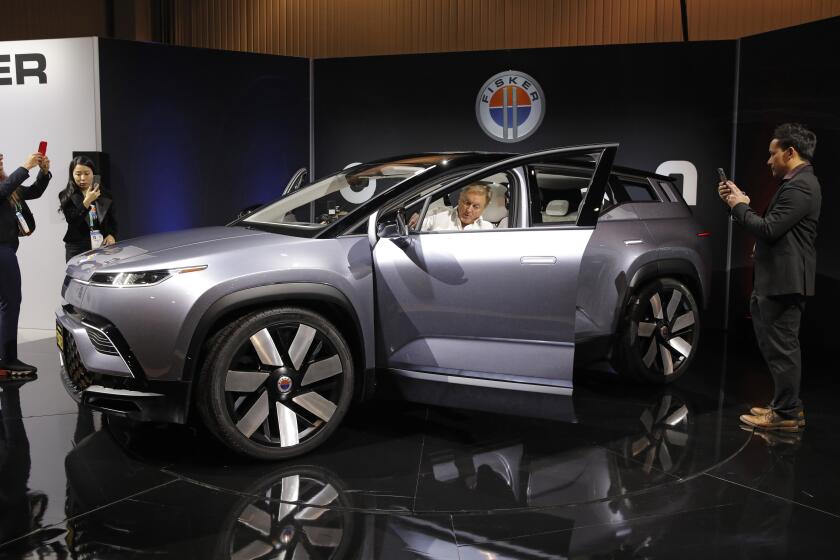Manhattan Beach EV maker Fisker went bankrupt. Here’s what buyers are doing about it

Michael Rosito loves his Fisker Ocean One, the very first model of the all-electric SUV that debuted last year.
The 62-year-old manufacturing and supply chain consultant says the fully loaded car for which he paid $69,500 “puts to shame” the Lexus sports cars he’s long driven and recently left a BMW X5 “in the dust.”
Here’s what the San Jose resident doesn’t like: He’s already had three home service calls but still has malfunctioning vents and internet connection issues — not to mention several open recalls yet to be resolved.
Manhattan Beach EV maker Fisker Inc. said it was halting production of its snazzy Ocean SUV, seeking financing and a strategic partner in a further setback for car designer Henrik Fisker.
He likes this even less: that Manhattan Beach-based Fisker Inc. declared bankruptcy in June, raising questions about whether the SUV he received a year ago would ever get the service and parts it needed.
“I would say even going back to February, it’s been very difficult to obtain, even before bankruptcy, any type of service from Fisker,” Rosito said.
With a long career in tech, Rosito hasn’t been one to sit around, though. He’s banded together with other Ocean buyers to form the Fisker Owners Assn. to advocate for their interests. It now boasts more than 3,000 members.

More than 6,000 Fisker Oceans were sold globally since the car was released last year, and with list prices ranging from $38,999 to $61,499 on later models — before the ailing company slashed prices in March — the buyers are not only higher income but atypical, willing to take a risk on a debut electric vehicle from a startup carmaker.
Glitches in the software that controls the new all-electric SUV contributed to a torrent of harsh online reviews — possibly hastening Fisker’s demise, despite remote updates that improved performance. Still, the car has been praised for its build and drive, with at least one review declaring it superior to a Tesla Model Y.
“There’s been a lot of negative reporting around this car to exhaustion, and a lot of the positives are going unmentioned,” said San Antonio resident Brandon Jones, 39, interim president of the owners association, who bought an Ocean Extreme for $46,000 in April. “That’s the reason why this effort is happening right now, because a lot of us love our cars.”
The group hired an attorney to advocate for its interests in the Chapter 11 restructuring proceedings playing out in U.S. Bankruptcy Court in Delaware. The startup sought bankruptcy protection after it was unable to reach a deal with a major automotive company or another strategic partner before running out of cash to pay its debts.
The association’s primary focus includes ensuring service and a steady supply of parts, ongoing access to the internet “cloud” software important for running the car, as well getting the outstanding recalls resolved and receiving some consideration for the vehicle’s warranty.
“The highest priority for us is to make sure that these vehicles that as recently as a few months ago people paid good money for .... are not very expensive hunks of metal in a year,” said Daniel Shamah, the group’s attorney.
The association has identified new parts held in supply warehouses, at parts manufacturers that had not shipped them and at the company’s contract factory in Graz, Austria, where some 4,200 Oceans were awaiting assembly when Fisker stopped production in March, Rosito said. Scrapped Oceans also are a source.
The group’s concerns were heightened when American Lease, a Bronx, N.Y., business that leases Uber and Lyft cars, put in a $46.25-million bid for Fisker’s remaining inventory of 3,321 Oceans, according to a court filing. That works out to an average of about $13,900 per vehicle.
The company said the cars would help it meet the city’s Green Rides Initiative, which requires ride-share vehicles to convert to zero-emission or wheelchair-accessible vehicles by 2030.
The sale was approved by the bankruptcy court July 16 after talks between the owners group and leasing company. The association filed a statement in support of the sale contingent on the two sides continuing discussions on parts and software, resolving the recalls and other issues.
An executive with American Lease, who asked not to be identified because he was not authorized to comment publicly, said there is an opportunity for the company and association to ensure a long-term supply of parts by buying them together at a discount from suppliers.
However, he said the association will need to work out its own access to Fisker’s cloud software since the purchase agreement covers only American Lease’s own vehicles.
This is not the first time a group of Fisker car owners has confronted this situation.
Company founder Henrik Fisker, 60, a noted car designer, previously launched Fisker Automotive in 2007, an Anaheim startup that went bankrupt six years later. It sold more than 2,000 Karma hybrid sports cars with a price tag around $100,000, which were coveted by Hollywood celebrities.
Forrest Cadam, general manager of Pat’s Garage in San Francisco, which repairs Karmas, said it can be a scramble to find parts, even though the shop maintains its own inventory and some parts are not specific to the Karmas because they had GM engines.
Electric truck maker Rivian was once seen as a rising star in the EV space. But now the company says it will lay off 10% of its employees, and its production targets for this year are coming in lower than expected.
“It’s definitely not straightforward. There’s a lot of hunting we have to do sometimes, but for the most part, we’re able to fix the majority of issues,” he said.
A key element in the shop’s ability to continue to service the vehicle, he said, has been access to the defunct company’s diagnostic scan tool — also a concern for the Oceans owners group.
The association in its court filing supporting the American Lease sale noted that Fisker needs to allocate funds to clear an open recall involving a malfunctioning cabin water pump that can cause the vehicle to lose power. Another recall involves door handles that don’t operate on some vehicles.

Fisker, which closed its Manhattan Beach headquarters in May and moved its remaining employees to Orange County, is still operating. Henrik Fisker remains the chief executive, though the company hired a chief restructuring officer before the bankruptcy.
On Monday, the Bankruptcy Court approved an agreement that will give Fisker access to $750,000 to rehire employees who issue software updates and to continue to work on the recalls. That is pending a possible conversion of the Chapter 11 restructuring into a Chapter 7 liquidation next month, which is being sought by its largest secured creditor, CVI Investments.
“Our near-term objectives have been achieved, but the long-term viability is still cloudy,” said Shamah, who had opposed a request by CVI to convert the case into a Chapter 7 as soon as Monday.
Fisker had opposed the conversion too, saying it is premature and would result in the loss of key personnel who are providing service to more than 4,000 U.S. customers and trying to resolve the outstanding recalls, before a sale of its remaining assets.
Jens Guthe, an Ocean buyer in Norway, said that owners have already made headway on their own, including reverse engineering the SUV’s application programming interface, allowing for the development of an app that can duplicate the function of the key fob. He bought a Fisker Ocean One for about $70,000 that he received in August 2023.
“We’re on track to get a phone as a key to relieve the Achilles heel of the fact that we weren’t able to buy more than one key fob to the car,” said Guthe, 65, an international banker who formerly worked at JPMorgan Chase.
He added that it helps that many Fisker owners are “over 40 with a nerdy, geeky interest in technology.”
More to Read
Sign up for This Evening's Big Stories
Catch up on the day with the 7 biggest L.A. Times stories in your inbox every weekday evening.
You may occasionally receive promotional content from the Los Angeles Times.













